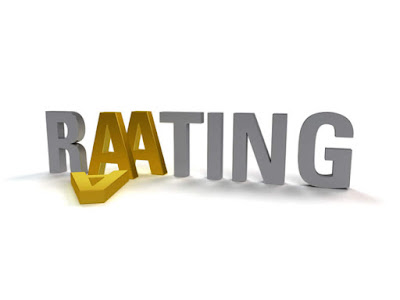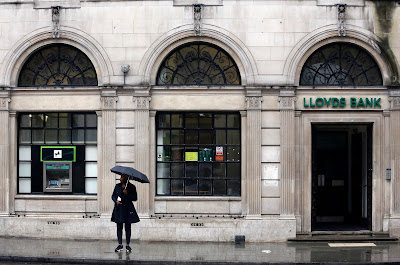The Wave of Credit Downgrades Rises on the Horizon
A number of financial media outlets, including Forbes, the
Wall Street Journal, and the Financial Times are all reporting that a wave of
downgrades is soon to be upon us because of the effects of the Covid-19
pandemic. In this post, we will take a look at those who have been downgraded,
those likely to be downgraded, and also the wider effect of these downgrades.
Also, it will be worth asking why so many downgrades are on the horizon
because, as one journalist recently wrote (Cezary Podkul of the WSJ), ‘a bond rated AAA
is supposed to keep that grade, even in tough times like these’. This is
the theoretical foundation of the credit rating differentiation, so why so many
downgrades?
On the 17th March, Forbes reported that ExxonMobil
had been downgraded by S&P, to AA from AA+. On the same day, S&P
took aim at Boeing, downgrading
the beleaguered aircraft manufacturer’s rating by two notches, from AA- to
BBB (just two notches above ‘junk status’. There are, perhaps, other reasons
for these particular downgrades. Boeing is undergoing one of the most difficult
periods in its history (as we have discussed before here
in Financial Regulation Matters) and,
as ExxonMobil’s CEO Darren Woods stated
immediately after the downgrade, the company is aiming to reduce its
capital and operating expenses as a result of the tumultuous climate, something
S&P cited as being one of the reasons for the downgrade. However, there are
a number of other high-profile companies being downgraded which onlookers are
suggesting is just the start of a larger wave. Lufthansa was recently
downgraded to junk status by Moody’s, S&P
cut Lufthansa and British Airways’ parent company IAG to one notch above junk,
whilst cruise ship operators Royal Caribbean and Carnival have been placed on a
negative outlook credit watch by S&P. We already know that Kraft-Heinz
has been downgraded to junk, whilst Macy’s
suffered the same fate not so long ago. S&P recently said that default
rates in the US were surging past 10%, up from 3.5% just last month. The effect
of this is that a number of other companies may be caught in the general
downturn, leading to further downgrades. The result of this, as
one commentator mentioned, is that it may be the case that there will be
too much ‘junk’ debt flooding the marketplace and not enough investors with the
appetite or capability to absorb it.
The downturn has continued to affect sectors. The insurance
sector is experiencing
some losses (the Philadelphia Contribution Group was recently downgraded by
AM Best). In the troubled CMBS market, S&P recently
stripped a AAA grade from a $215 million bond backed by mortgages on the
Destiny USA mall. Cezary Podkul and Gunjan Banerji of the WSJ discuss how a number of bonds
attached to industries like shopping malls, hotels, airlines, and even local
governments are all in line for downgrades, with the rating agencies stating
that ‘the
global recession is here and now’ and that there has been a ‘severe and extensive
credit shock across many sectors, regions and markets’. A further casualty has
been Delta Airlines, who have
seen their credit status reduced to junk status by S&P. Yet, even
though these companies on the brink have been downgraded, a number of AAA rated
entities and bonds are being downgraded, which Podkul and Banerji quite rightly
note should not be the case, with AAA-rated entities being regarded as safe as
Treasury bonds. The sentiment is that such potential shocks should have already been factored into a rating, rather than waiting for
them and then reacting via downgrades. According to their article, there are
more than 100 downgrades that have been related to the Covid-19 pandemic, and
many more are planned. So, how much responsibility should we lay at the feet of
the rating agencies?
The unfortunate conclusion is that a number of onlookers who
have suggested the rating agencies have very little informational value to add
to the marketplace, and are merely reactionary in nature, will be validated by
these recent events. The key question is, perhaps, whether we should expect the agencies to foresee a crisis
like the one currently enveloping the world, or at the very least whether they
should factor in the potential of a
crisis of this magnitude happening. Is the Covid-19 a so-called ‘black
swan event’? If we accept that this is a black swan event, then the
position of credit rating agencies is a difficult one. However, if we suggest
that the concerted move into considering ESG-related issues fundamentally within the credit rating
production process should have impacted the development of top-rated ratings so
much that shocks like these are considered, then the position of the agencies
is less precarious. That sentiment would suggest that the rate of downgrades
should have been reduced because environmental and/or social elements should
have been considered more. Maybe not. Yet, the subjectivity of the ‘E’ and ‘S’
elements, as compared to the ‘G’ element, is now perhaps being revealed to be a
major issue with the concerted incorporation of ESG-related information. They
are really important elements of the impacts upon businesses, as we are now
seeing, and their incorporation is vital. But, finding an agreed-upon
understanding of what ESG means, and how it impacts upon creditworthiness,
appears to be a fundamental issue. What is clear is that work needs to be done
on this issue, on behalf of the agencies, and it needs to be done very quickly.
Another raft of downgrades has the potential to affect the authority of the
rating agencies, although a number of people would suggest they are somewhat
immune to such pressures anyway.
Keywords – credit rating agencies, downgrades, ESG, @finregmatters





Comments
Post a Comment